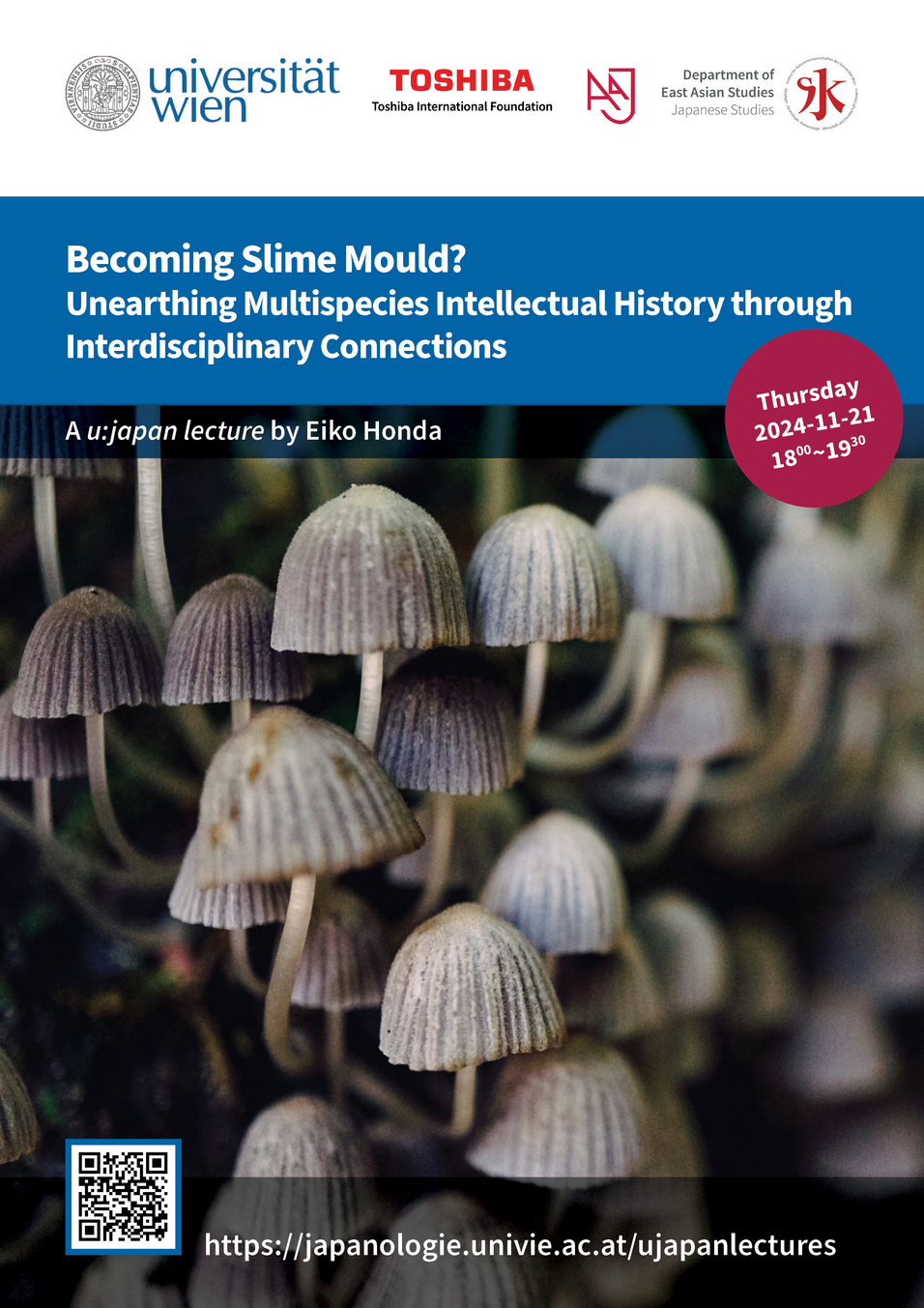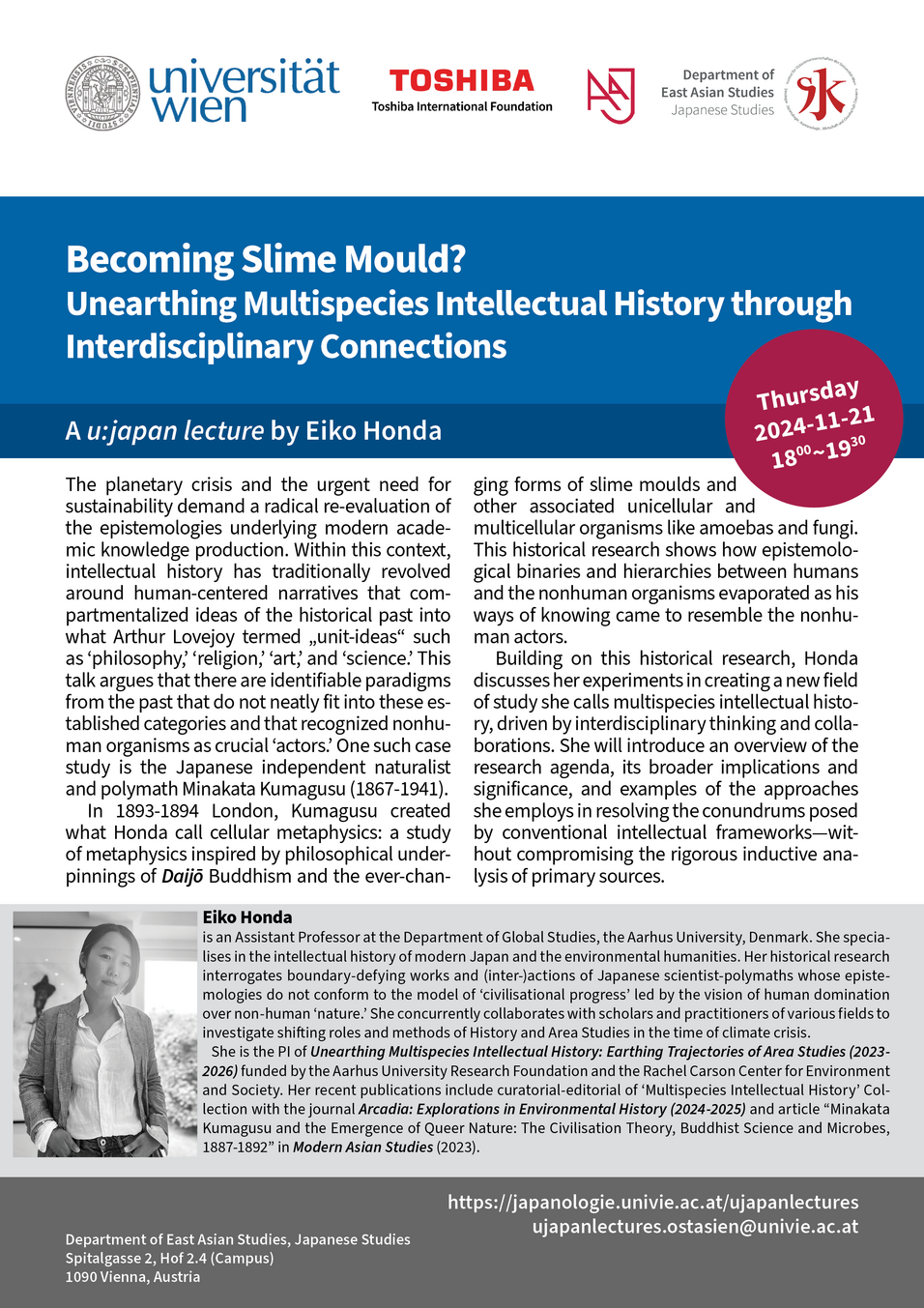| Abstract |
The planetary crisis and the urgent need for sustainability demand a radical re-evaluation of the epistemologies underlying modern academic knowledge production. Within this context, intellectual history has traditionally revolved around human-centered narratives that compartmentalized ideas of the historical past into what Arthur Lovejoy termed "unit-ideas" such as ‘philosophy,’ ‘religion,’ ‘art,’ and ‘science.’ This talk argues that there are identifiable paradigms from the past that do not neatly fit into these established categories and that recognized nonhuman organisms as crucial ‘actors.’ One such case study is the Japanese independent naturalist and polymath Minakata Kumagusu (1867-1941).
In 1893-1894 London, Kumagusu created what Honda call cellular metaphysics: a study of metaphysics inspired by philosophical underpinnings of Daijō Buddhism and the ever-changing forms of slime moulds and other associated unicellular and multicellular organisms like amoebas and fungi. This historical research shows how epistemological binaries and hierarchies between humans and the nonhuman organisms evaporated as his ways of knowing came to resemble the nonhuman actors.
Building on this historical research, Honda discusses her experiments in creating a new field of study she calls multispecies intellectual history, driven by interdisciplinary thinking and collaborations. She will introduce an overview of the research agenda, its broader implications and significance, and examples of the approaches she employs in resolving the conundrums posed by conventional intellectual frameworks—without compromising the rigorous inductive analysis of primary sources.
| Bio |
Eiko Honda is an Assistant Professor at the Department of Global Studies, the Aarhus University, Denmark. She specialises in the intellectual history of modern Japan and the environmental humanities. Her historical research interrogates boundary-defying works and (inter-)actions of Japanese scientist-polymaths whose epistemologies do not conform to the model of ‘civilisational progress’ led by the vision of human domination over non-human ‘nature.’ She concurrently collaborates with scholars and practitioners of various fields to investigate shifting roles and methods of History and Area Studies in the time of climate crisis. She is the PI of Unearthing Multispecies Intellectual History: Earthing Trajectories of Area Studies (2023-2026) funded by the Aarhus University Research Foundation and the Rachel Carson Center for Environment and Society. Her recent publications include curatorial-editorial of ‘Multispecies Intellectual History’ Collection with the journal Arcadia: Explorations in Environmental History (2024-2025) and article “Minakata Kumagusu and the Emergence of Queer Nature: The Civilisation Theory, Buddhist Science and Microbes, 1887-1892” in Modern Asian Studies (2023).
| Date & Time |
u:japan lecture | s09e05
Thursday 2024-11-21, 18:00~19:30
| Place & Preparations |
| Further Questions? |
Please contact ujapanlectures.ostasien@univie.ac.at or visit https://japanologie.univie.ac.at/ujapanlectures/s09/#e05.


